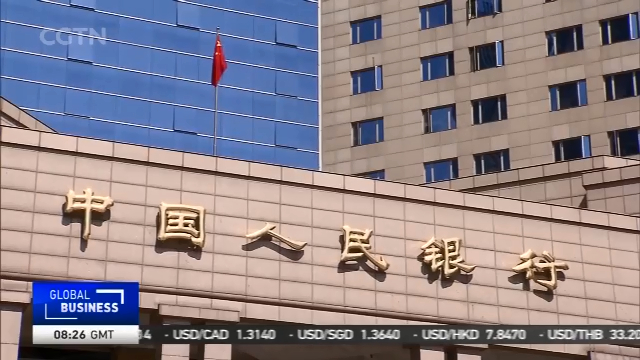
18:45, 05-Jul-2018
Helping Small Businesses: China triple-R cut to ease credit access for SMEs
Updated
17:46, 08-Jul-2018
02:48

China announced a cut to its reserve requirement ratio of 0.5-percent in late June that boost in liquidity and credit is effective starting today. Analysts expect this latest triple-R cut to inject north of 700 billion yuan into the economy, with 200 billion going to support small and medium sized enterprises who have a more difficult time accessing credit compared to larger companies. --Chen Tong takes a look at China's latest move to ensure a vibrant ecosystem for small businesses to thrive.
The central bank's cut in the reserve requirement ratio this month follows two other similar moves in January and April. All are aimed at supporting the growth of small and medium sized companies -- the bank funds freed up by the reduction are to be passed on to the smaller companies in the form of business loans. Smaller companies always have a large demand for loans, and it's not always easy for commercial banks to decide whether to lend to them, as they can frequently have weaker financial backgrounds. The targeted cut in the reserve requirement ratio is expected to make it easier for smaller companies to get the cash they need.
SONG JIE, GENERAL MANAGER G&E HUMAN RESOURCES CONSULTING "It's actually a motivation mechanism -- commercial banks will have a bigger motive to serve more SMEs. Earnings of the SMEs may not be very high, so it's risky to lend money to them. But they will have easier access to loans after the reduction in the reserve requirement takes effect."
Ninety-nine percent of all companies in the country are classified as small or medium sized, so the reduction is also expected to add a dose of energy to the jobs market. The Ministry of Industry and Information Technology has pledged to improve the employment environment in small and medium sized companies by 2020. It is hoped that by then, Chinese SMEs will provide 8 million new jobs every year.
LI LIUYANG, CHIEF ANALYST CHINA MERCHANTS BANK "Small businesses need bank loans to support their operations because bank loans have lower funding costs. If they can get more loans it may help small entrepreneurs boost productivity and profitability. If they have cheaper loans, it's easier for them to expand their business and hire more people."
A survey by the People's Bank of China shows the demand for loans by SMEs in the first quarter of the year increased by 4 percent as compared with last year, which brought it to a three-year high. With increasing demand for loans, experts expect more monetary policies to come to support SMEs in the second half of this year.

SITEMAP
Copyright © 2018 CGTN. Beijing ICP prepared NO.16065310-3
Copyright © 2018 CGTN. Beijing ICP prepared NO.16065310-3